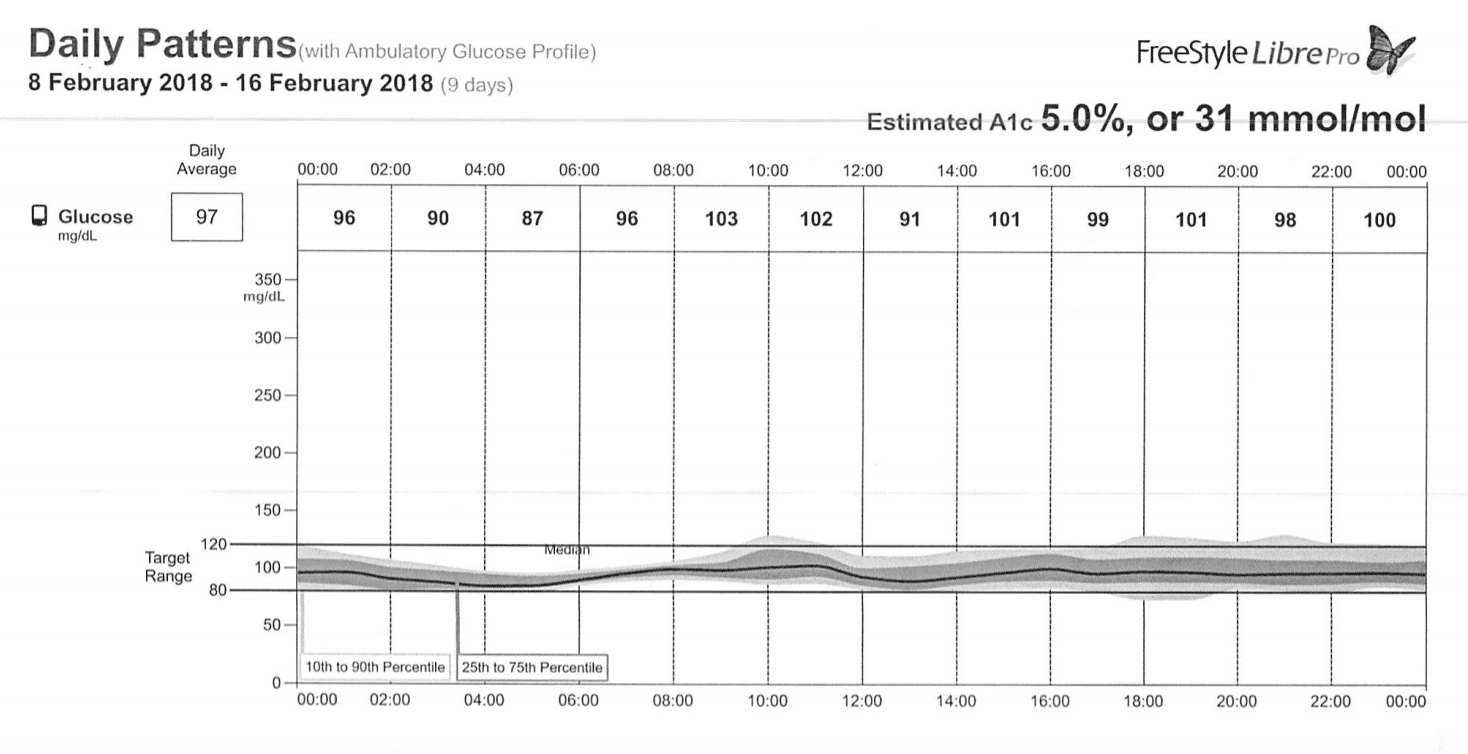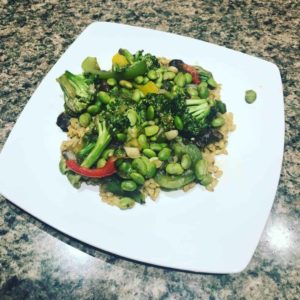The Secret To Steady Blood Glucose and Maintaining Weight Loss With Diabetes
When Heather applied for life insurance in January 2017, she was surprised to be denied.
Her lab work indicated that she had developed type 2 diabetes. She had been overweight and had polycystic ovarian syndrome (PCOS) for years, but had no idea that she was also living with type 2 diabetes.
Her A1c was 9.2%, and she was immediately placed on 3 medications: Xigduo (two medications in one) at 1000mg twice daily, and Trulicity at 75mg once per week.
Prior to her diagnosis, she had been eating a Paleo diet, which was a step in the right direction given that she had eliminated processed foods and dairy products.
But because it is a meat-heavy diet, it did not prevent her from developing type 2 diabetes. Meat consumption is so strongly tied to the development of type 2 diabetes that some researchers and physicians argue that it should be considered a risk factor (1).
Recognizing that the Paleo diet wasn’t working for her, Heather sought out other information – and quickly became both confused and discouraged. There were so many different opinions, each staunchly believing theirs was the ultimate truth.
She came across some nutrition books that caught her attention, including The China Study by Dr. T. Colin Campbell and How Not to Die by Dr. Michael Greger. However, she had also joined some diabetes support groups on Facebook that were espousing the benefits of low-carbohydrate diets, quite the opposite of what these books had taught her.
Intuitively, a plant-based diet made sense to Heather, so she cut out meat and started eating a vegetarian diet. Three months later, her A1c had dropped to 5.2%.
In October 2017, she began working with a dietitian to move toward an even healthier diet, including low-fat whole foods and no dairy products.
As Heather made these changes, she began to reverse insulin resistance, and therefore gain insulin sensitivity. She experienced several episodes of hypoglycemia because the amount of insulin she was taking had become too high.
Working with a physician, Heather was able to begin reducing, and eventually eliminating, her diabetes medications. By February 2018, she was completely medication-free.
Today, eating an abundance of low-fat high-carbohydrate foods, Heather's blood glucose control is the best it has ever been. Here is a snapshot of her daily blood glucose pattern from just a couple of months ago. She easily stays right within the target range:

Despite all of this success, Heather felt she was missing one very big component of what would make this lifestyle sustainable: a support group.
Social situations tended to bring peer pressure, and Heather found that in these cases she would often choose foods that went against her dietary preferences.
Heather quickly realized just how much better she felt when she followed her new lifestyle and became more skilled at making decisions that supported this resolve. Despite this, she still felt very alone.
Heather longed to have a support group – a community of people who were going through a similar experience that could encourage one another throughout the process.
At Mastering Diabetes, she found the support group that she had been searching for. The private Facebook community helped her learn, gain a sense of community, and stay accountable. She felt that being involved in a support group made the entire experience more fun.
With the help of this support group, Heather now feels confident in her ability to maintain her weight loss and steady blood glucose control by sticking to the program.
Now that her days of fast food, meat, and cheese are over, here’s what Heather eats in a typical day:




Since making these changes, Heather has experienced a collection of unexpected and exciting benefits.
As an avid weightlifter, Heather is thrilled to see her strength improve after removing meat and focusing on low-fat, unprocessed plant foods. She’s able to lift more now than ever before, while feeling lighter and maintaining a leaner physique.


She sleeps better, now has a regular menstrual cycle, and feels more at peace. She has more energy, more happiness, more enthusiasm, and now feels more driven to pursue passion projects and play with her kids.
Meanwhile, her blood work shows that everything is in check, and her blood glucose is consistently steady and predictable.
Her biggest tips for anyone that is interested in trying out this approach are:
If you’re interested in joining Heather in the Mastering Diabetes private Facebook community, click here to get started today.
Lower Your A1c and Get to Your Ideal Body Weight ... Guaranteed

Your results are guaranteed. Join more than 2,000 members today
Personalized coaching puts you in immediate control of your diabetes health, helps you gain energy, improves your quality of life, and reduces or eliminates your meds.
Where Do You Get Your Support?
Share in the comments below: Do you feel supported in this lifestyle? If you are part of the Mastering Diabetes Group Coaching Program, what has your experience in the private Facebook group been like so far?

